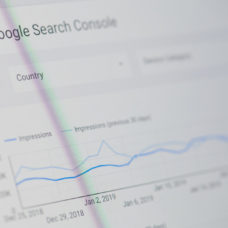On January 1st, Germany began enforcing a new law to fight against the publication of fake news, hate speech, and illegal content on social networks.
The year 2018 seems to be the year of reevaluation and self-censorship for social platforms, with polemical content they let users publish becoming a hot-button issue.
For example, YouTube is dealing with a sensitive case of a vast content exploitation that involves children, over which many major publishers, like Adidas and Mars Inc., decided to pull their advertising campaigns.
Even though YouTube is backed by the mighty Google, and with powerful algorithms and an army of moderators, the platform still can’t figure out a way to filter inappropriate content, especially videos aimed at children.
Besides the lack of clear guidelines for moderators to evaluate content, YouTube’s undertrained AI is also part of the problem.
#Socialmedia platforms could be fined in Germany up to $60 million over illegal content.Click To TweetNow, social networks in Germany are required to comply with a new law that holds them responsible for illegal content published and shared on their platforms.
“NetzDG” Makes Social Media Accountable for Illegal Content
In 2015, debate kindled in Germany over hate speech in social networks with the massive arrival of refugees to the country.
The German Federal Ministry of Justice and Consumer Protection first thought of a project against online hate crimes, which then evolved into the NetzDG.
Passed last June, NetzDG (Netzwerkdurchsetzungsgesetz: Network Enforcement Act) came into effect on January 1st as a law that obliges social media providers to remove or block content evident as illegal within 24 hours of receiving a complaint about it.
Illegal content could take the form of hate or defamatory posts and comments, racist speech, fake news, and any other law-breaking content as defined by German regulations.
For cases where the illegality of content is unclear, social platforms have up to seven days. If providers fail to meet these obligations, fines could amount to €50 million ($60 million USD).
Germany Throws Social Networks a Curve Ball
Exempt from the NetzDG obligations are social media with less than two million users. So Facebook, Twitter, and YouTube are likely the first target of the new law.
Other media platforms, like Flickr, Tumblr, and Reddit could also find themselves at odds with the German government.
Last summer, when the NetzDG law was passed, all the three social media giants (Facebook, Twitter, and YouTube-parent Google) expressed their intent to cooperate with new regulations.
“We’re committed to removing hate speech any time we become aware of it.” Said Facebook in a press release on June 27. “Over the last two months, on average, we deleted around 66,000 posts reported as hate speech per week — that’s around 288,000 posts a month globally.”
The new law is the German government’s reaction to the flow of hate speech that has increased threefold in the last three years, and disinformation (fake news), which accompanied the 2017 elections.
The NetzDG has been denounced by many as a liberticidal law that violates the freedom of speech and free internet principles, but others see it as a necessary response to the drastic increase in hate speech, fake news, and sensationalized content over the past number of years.



















Comments (0)
Most Recent